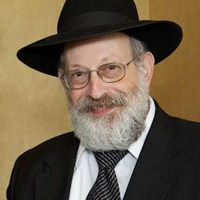New Survey Says Parents Can Get Mo’ Satisfaction with School Choice
To maintain and grow enrollment, school leaders need to know whether parents are satisfied with the education their children are receiving and the learning environment in which it takes place.
Studying parent satisfaction is by no means new; it is often an included outcome in a variety of school choice research as a secondary outcome.1 This satisfaction research all arrives at the same conclusion, which Harvard Professor Paul Peterson aptly summarizes:
If the only thing that counts is consumer satisfaction, school choice is a clear winner.2
Anyone might say they are satisfied, especially when they are getting some help to pay for a private school education. What is more telling are the reasons why parents say they are satisfied.
With that in mind, our new report, Why Parents Choose, looks to Indiana’s robust school choice environment for answers. We utilized original survey data to better understand the experiences of private school parents, including many using the state’s school choice programs, to examine why they chose their schools and why they are satisfied or dissatisfied.
How Parents Feel About The Schools Their Children Left
Conventional wisdom tells us most parents who have made the effort to apply for a voucher or tax-credit scholarship in the state of Indiana are likely dissatisfied with their previous schools. Why else would they be putting in the time and commitment to finding a different school if they were happy?
On the contrary, we found that school choice parents in Indiana were satisfied with their previous schools.
More than half (53 percent) of the school choice parents who responded to our survey said they were at least “somewhat satisfied” with their previous schools, with 29 percent saying they were “very satisfied.” This is not to say that some of the responding parents weren’t unhappy with their previous school, as parents who said they were dissatisfied were more likely to say they were “very dissatisfied” instead of expressing lukewarm feelings towards their previous school.

If parents participating in one of Indiana’s school choice programs are satisfied with their neighborhood public schools, why are they actively seeking out new private schools for their children?
Though parents were satisfied with their previous neighborhood public school (more than half of parents who had previously enrolled their children in a different school did so in a neighborhood public school), they felt something was missing from their children’s education.
When we asked parents to list all of the reasons why they were leaving their previous schools, more than one-third of parents participating in one of Indiana’s school choice programs and nearly one-third of all private school parents left their previous schools because of a lack of religious environment or instruction.
Nearly one-third of school choice parents said they left their previous schools because of the academic quality, and a similar amount stated a lack of morals/character/values instruction in their previous schools led them to leave.

Why Parents Chose Their Current Private Schools
Parents were able to select as many reasons as they liked for why they chose their current schools.
The most popular were religious environment, morals/character/values instruction, and better academics. These three school characteristics were also the most popular reasons when parents had to select the single most important reason for choosing their private schools.

This selection of a private school for morals/character/values instruction may seem counterintuitive, given that public schools are open to all students and are what Felix Frankfurter, former associate justice of the Supreme Court of the United States, called “the symbol of our democracy.”
However, as University of Arkansas Professor Patrick Wolf shows in his meta-analytic review of the literature measuring the effect of school choice on students’ civic values, schools of choice—including religious private schools—actually do a better job of teaching and enhancing civic values than neighborhood public schools. He finds, “Twenty-two study results show a school choice advantage, suggesting the secular private schooling enhances political tolerance, that charter schooling increasing voluntarism, and that education at an evangelical private school increases political knowledge.”
Parents selecting private schools for their children clearly believe they will receive increased instruction in civic values than if they were to stay in their previous neighborhood public schools.
How Parents Feel About Their Schools of Choice
A whopping 93 percent of parents who enroll their children in an Indiana private school through one of the state’s school choice programs were at least “somewhat satisfied” with their private school, while 81 percent of school choice parents said they were “very satisfied.”

Indiana parents participating in the state’s school choice programs are seemingly satisfied with their schools, be it the neighborhood public schools they left or the new private schools they have chosen. While many school choice parents may have been satisfied with their public schools, it appears from our survey results that these schools were lacking in the moral, religious and values education they truly desired for their children.
It is important to recognize that parents may just be saying they are more satisfied because their new schools are just that: new. These parents may be filtering out any negatives they experience at their new schools and convincing themselves they have made a great choice for their children.
However, since our respondents include parents who also responded to a survey in 2013, and the most recent survey was conducted near the end of the 2015–16 school year—it is highly unlikely all of our respondents would still be experiencing this initial honeymoon period of satisfaction.
Instead, it seems that parents who are afforded the choice of private schools as well as their neighborhood public school actively seek out schools that provide the religious environment and/or values and character instruction most private schools are able to provide.
Limiting choice solely to neighborhood public schools would leave many parents not fully satisfied because they cannot access the best educational fit for their children—as The Rolling Stones said—no matter how hard they try and they try and they try. Making sure parents are as satisfied as possible should be the policy when providing an education, not limiting them to enroll their children in schools that are going to provide a less than complete education in the parents’ eyes.
To read our full report, visit www.edchoice.org/INParentSurvey.
1. See William G. Howell and Paul E. Peterson, The Education Gap: Vouchers and Urban Schools (Washington, DC: Brookings Institution, 2002); Kim K. Metcalf, Evaluation of the Cleveland Scholarship and Tutoring Grant Program: 1996-1999 (Bloomington: Ind. Univ., Ind. Center for Evaluation, 2001), http://cdm16007.contentdm.oclc.org/cdm/ref/collection/p267401ccp2/id/1948; John F. Witte, The Market Approach to Education: An Analysis of America’s First Voucher Program (Princeton, NJ: Princeton Univ. Press, 2001), http://press.princeton.edu/titles/6751.html.
2. Paul E. Peterson, “School Choice: A Report Card,” in Learning from School Choice, ed. Peterson and Bryan C. Hassel (Washington, DC: Brookings Institution, 1998), p. 18, .





